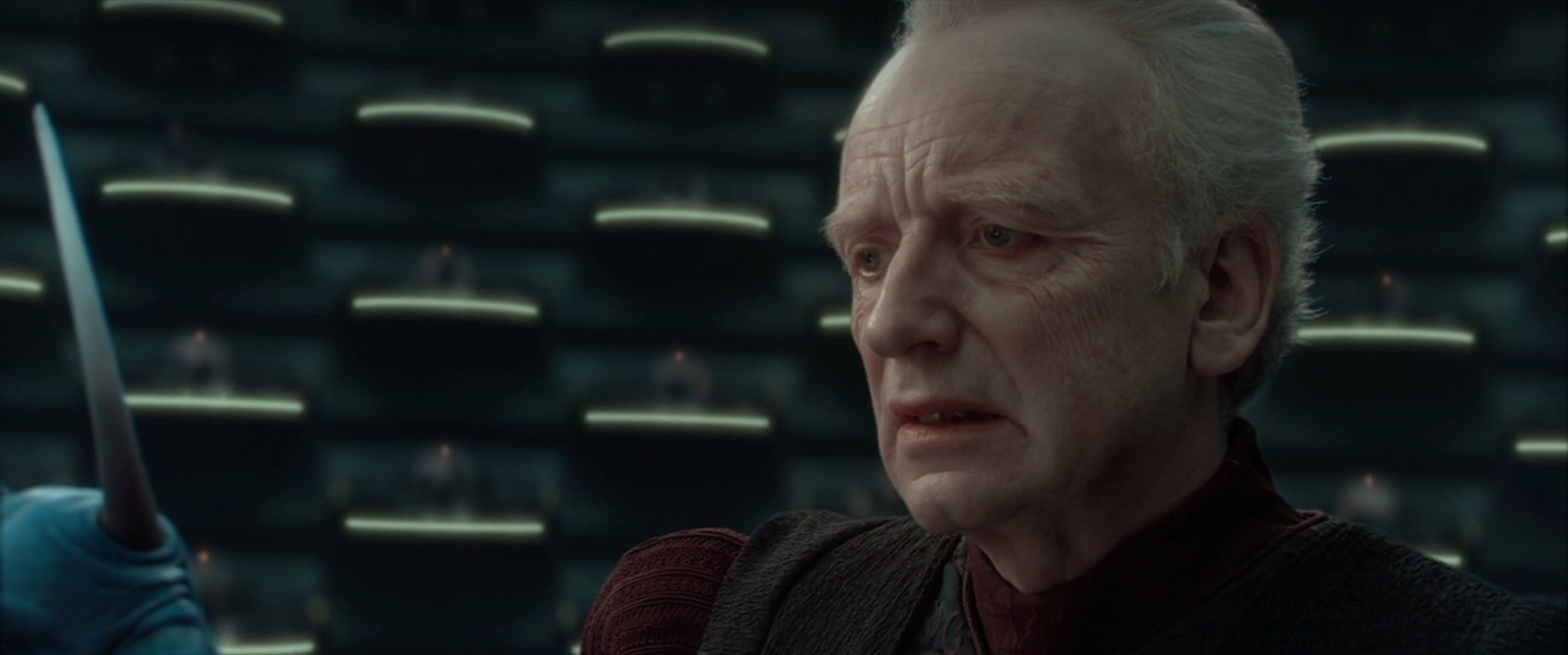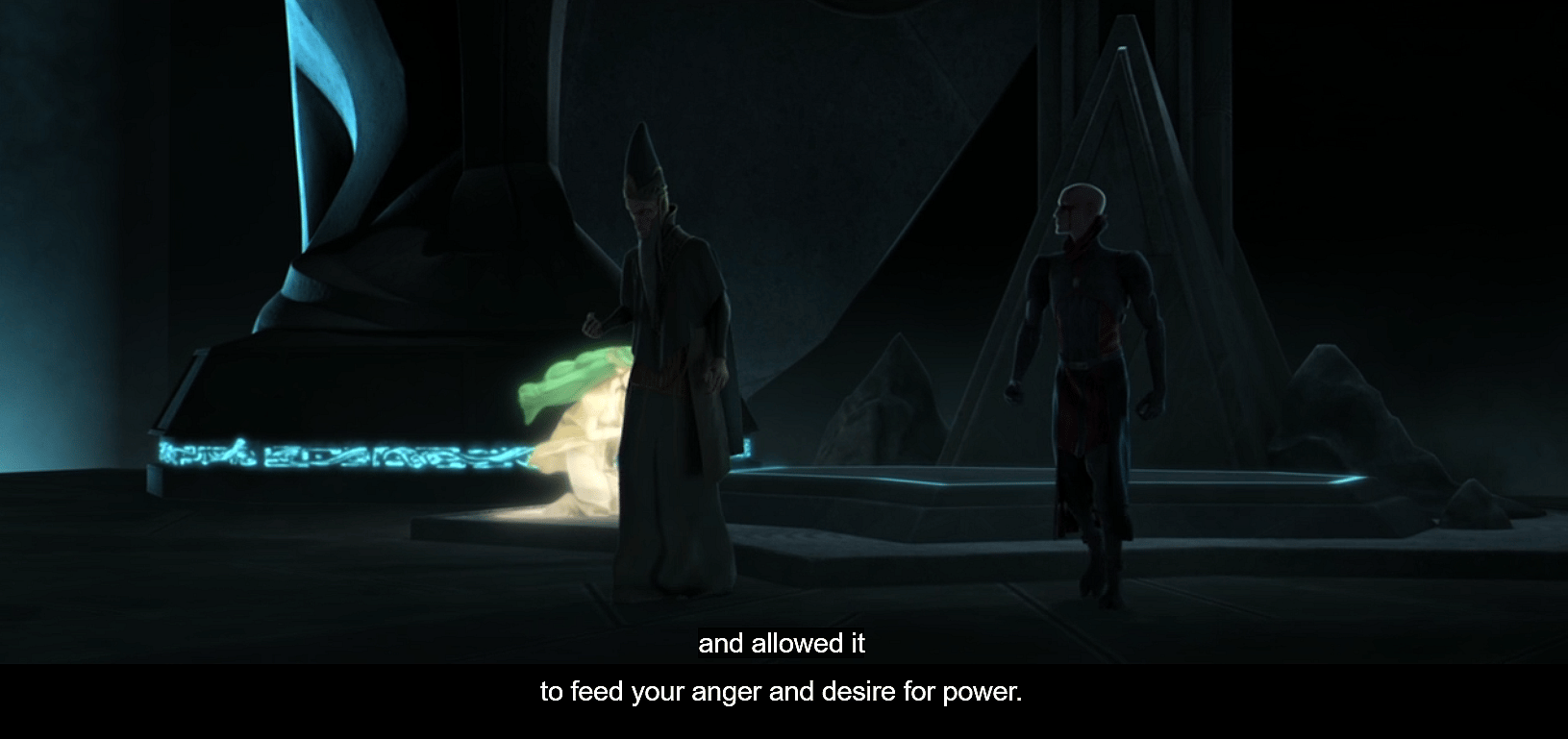Opinion: How Palpatine’s “Good Is A Point Of View” Fooled Not Only Anakin Skywalker But Also A Generation Of Star Wars Fans

What you’re about to read is a Star Wars story, believe it or not. Ever since the horrific October 7th attack on Israel by the terrorist organization Hamas, I’ve been thinking a lot about the reality of good and evil, and when exactly Westerners lost sight of how to tell the difference between the two.
From the pro-Palestinian protests blocking major highways to the mainstream calls for Jewish genocide on every major college campus, we’re seeing now the rotten fruit of seeds planted in the years after 9/11. Moral relativism has overtaken our culture.

America had a honeymoon period of unity and courage after the 9/11 attacks. There was a sense on the streets, in Washington, in the media, and in our universities what had to be done after the Twin Towers fell. We’d go after the bad guys in Afghanistan. Then the mission creep began, and George W. Bush announced in 2003 his intent to depose Saddam Hussein in Iraq.
A shift began. I was 14 when the first trailer for Star Wars: Episode III: The Revenge of the Sith debuted on November 5, 2004. By that time the Iraq War was a little more than a year old.
When my friends and I saw that trailer, the discussions over lunch at school were all about the rise of the Empire and the collapse of democracy. We were curious how the good guys would become the bad guys. We know about George Lucas’ concerns about the legacy of Vietnam and phony wars, and we started to theorize that George W. Bush could be a Palpatine-like figure.

After all, this was right after Episode II: Attack of the Clones, where Chancellor Palpatine took on Emergency Powers from the Galactic Senate, mirroring real events happening in the United States with the PATRIOT Act.
From the moment Palpatine remarked to Anakin Skywalker that, “Good is a point of view” and that “The Sith and the Jedi are similar in almost every way, including their quest for greater power,” many Star Wars fans began to take this idea seriously, just as Anakin Skywalker did.

RELATED: Opinion: Disney’s Star Wars Sequels Were Doomed From The Start
And it’s easy to see why, given what was going on in the real world with America’s slide from justified victim to human rights abuser, shown most clearly in the infamous Abu Ghraib prison reports of late 2003. We’ve never recovered from this crisis of self-perception.
Good guys must be bad guys, and bad guys must be misunderstood or even good.
That’s why I produced this video on Star Wars and Morality for Geeky Stoics, to unpack what Star Wars does and does not teach us about objective right and wrong.
I was like Anakin once. My twenties were a time of taking Palpatine’s words as fact. I affirmed lies with “Who’s to say” and covered for a handful of personal failings with the warm blanket of having “empathy”. It feels very good to win the battle of who is more open-minded, something that explains much of our disintegrating culture in the West. The “smartest” people in the room tend to be those who can best explain the case for barbarism, terror, and death. But it’s a deception.
The same people who take Palpatine at his word don’t tend to have nice things to say about what Anakin did to the Younglings in the Jedi Temple. They know that was wrong. But for some reason, the fandom narratives about Anakin’s fall being justified always go back to the corruption within the Jedi Order. As if a religious institution being politicized is a straight line to justifying their extermination and the death of innocents.

Years later, in Star Wars: Episode V: The Empire Strikes Back, Luke Skywalker is training with Yoda on Dagobah and he wants to know about the dark side. He asks first, “Is the dark side stronger?”
Yoda answers, “No. Quicker. Easier. More seductive.”
Luke goes on, “How am I to know the good side from the bad?”
A good question.
Yoda is clear in his response. “You will know — when you are calm. At peace. Passive.”

C.S. Lewis (The Chronicles of Narnia) spoke about this very idea on-air during the German air raids over London during World War II. He broadcast a series of talks between 1941 and 1944 which are now collected in the book, Mere Christianity, where Lewis works his way through ethical questions about human existence that led him to believe in God.
His first observation is that we human beings know Right from Wrong innately. He calls this the Law of Nature. Beginning with simple indecencies such as, “Hey you took my seat, I was sitting there first,” and “Leave that person alone, he isn’t doing you any harm,” human beings appeal to one another’s sense of what the standards of behavior should be. We almost expect people to know it.

“The other man very seldom replies: ‘To Hell with your standard.’ And if they do, a special excuse is about to follow,” he continues.
Anakin Skywalker knew that murdering Jedi children was wrong. But he had a special excuse in what he saw of Mace Windu’s attempt to arrest Palpatine as well as his visions of Padme’s untimely death.

Leftist Americans know that the mass murder and rape of Israeli civilians attending a music festival is wrong, but if they can fit the victims into the position of “colonizer”, it can be tolerated in the name of social justice.
Lewis asks us to make note of the things we make excuses for. It tends to be that we make excuses for cowardice, anger, revenge, lust, and greed. No one makes excuses for not cheating on their spouse, not screaming when they’re angry, or not attacking an enemy in the streets.

Like Yoda suggests. when you are still, listening, calm, and at peace — you know what the good side is and can distinguish it from the bad. You’ve always known.
Anakin Skywalker was the opposite of all these things. He was panicked, paranoid, stressed and filled with a sense of impending doom like when he dreamed of the death of his mother in The Attack of the Clones. He was a prime target for Palpatine’s deception.

And so are we. All of us living in times of chaos, and cultural unraveling, worry about the future of democracy and self-government. We’re gripped in 24-hour news cycles of terror and anxiety. Our heroes are constantly torn down and recast as villains, and our country has without a doubt gotten worse, not better, in the years since the 9/11 attacks.
But this didn’t happen because America responded to genuine evil with strength and a sense of righteousness. It happened because we blinked.
NEXT: Opinion: Dear Bob Iger, Star Wars Is Not A Platform For Sharmeen Obaid-Chinoy’s Feminist Activism
